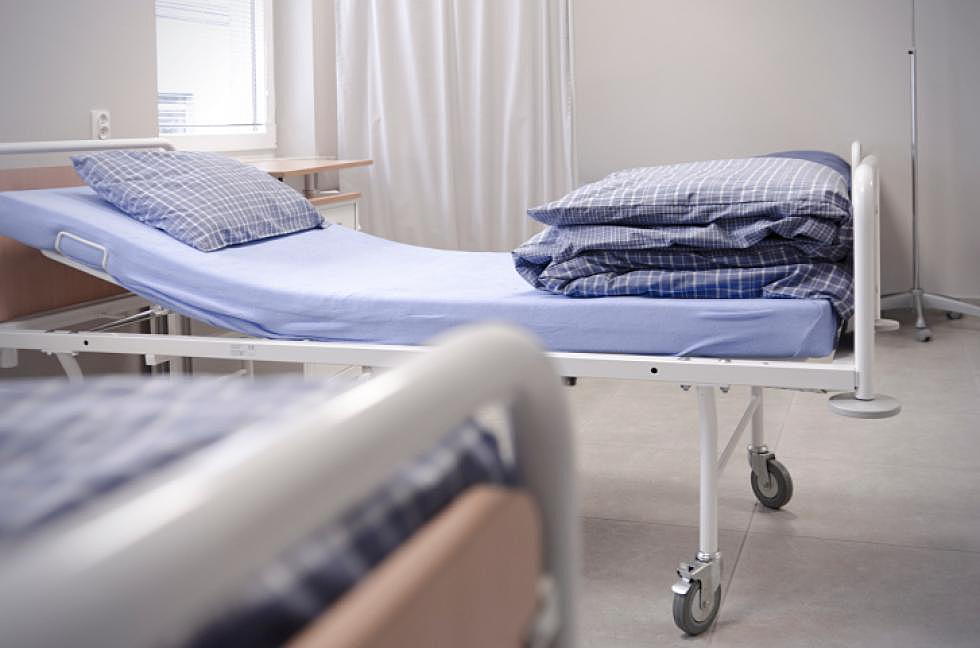
Nurses Association chief: Don’t treat Ebola patients in NJ hospitals
One health expert doesn't think Ebola patients should be treated in New Jersey hospitals.
There are four facilities in the U.S. that are uniquely qualified to best care for Ebola patients and none of them is in New Jersey. That is the key reason Dr. Richard Ridge, chief executive officer for the New Jersey State Nurses Association, thinks Ebola patients should be sent to where they can receive the best treatment.
"There's a set of screening instructions from the CDC (Centers for Disease Control and Prevention) to identify those folks who just traveled back from West Africa that are at high risk for either potential or actual Ebola. Once we identify those patients, these patients should probably be managed in a specialized bio-containment unit," Ridge said.
The bio-containment unit nearest to New Jersey is in Fort Detrick, Maryland.
"As of today, we do think the safest thing is to identify these folks as they present, follow the CDC directions and guidelines on how to manage these patients initially and then as we would any other patient requiring specialty care we would transport them to a specialized care unit," Ridge explained. "Those units prepare for this. They have specialized environments and they drill day in and day out to take care of this kind of thing."
The concept is not new. The second caregiver at a Texas hospital who was exposed to and is now infected with Ebola is being transported to the bio-containment unit at Emory Hospital in Atlanta.
Certain patients in New Jersey are already routinely sent to where they can get the best treatment Ridge said.
"In New Jersey, we have one burn unit. Every hospital is not equipped to deal with serious burns. The St. Barnabas burn unit does this day-in and day-out so if you're in South Jersey and you have burns over 85 percent of your body you're going to be put into a Medivac unit and you're going to be taken to a specialized unit. The bio-containment approach is really no different," Ridge said. "We have four units. Let's use them."
In an Oct. 10 letter sent to state hospitals, New Jersey Health Commissioner Mary O'Dowd asked them to send fake patients to the hospital to see if hospital staff identifies them as potential Ebola patients and handles the cases appropriately.
The drills have been effective, but there is always room for improvement said Jeanne Otersen, chief of staff with the Health Professionals and Allied Employees (HPAE) union.
"We have gaps that can be covered. We have procedures that can be improved and we have to move as quickly as possible," Otersen said. "We have had examples of people who are concerned about (protective) equipment not being in ready supply and not every hospital at this point, as we understand it has their protocols up and in place."
Every hospital wants to be prepared and every hospital is working toward that goal Otersen said. HPAE has posted extensive Ebola information on its website including CDC updates, resources, recommendations for hospitals and a checklist for Ebola preparedness. To access that information, click here.
Ebola first appeared in 1976 in Congo and has caused periodic outbreaks there and in other central African countries. It had not been detected in West Africa until the current epidemic -- the worst ever of Ebola -- began earlier this year.
So far, more than 8,900 people have been infected and more than 4,400 have died, mostly in Guinea, Liberia and Sierra Leone. Officials say the epidemic is not even close to being brought under control.
Health experts think the initial cases in each outbreak got it from eating or handling Ebola-infected animals, then spread it person-to-person. The exact source in nature has not been proved but the leading suspect is a certain type of fruit bat.
The Associated Press contributed to this report.
More From New Jersey 101.5 FM









